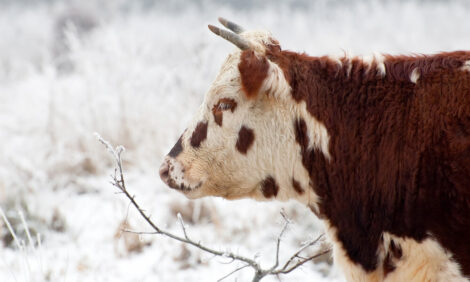



EU Considers Regulations to Stop Slaughter Suffering
EU - All forms of unnecessary suffering by animals must be avoided, but religious freedom must be respected, says the Agriculture Committee, which voted on Monday on plans to tighten up the rules on animal welfare at the time of slaughter.Every year in the European Union, 360 million pigs, cattle, sheep and goats are killed, as are over 4 billion poultry birds and 25 million animals reared for fur. In a consultation report drafted by Janusz Wojciechowski (UEN, PL), the Agriculture Committee approved a European Commission proposal seeking to replace the 1993 directive on the protection of animals at the time of slaughter by a new regulation to improve animal welfare while allowing more uniform application of EU rules in Member States.
MEPs' amendments are chiefly intended to clarify the rules so they can be more easily applied and protect animals effectively, to prevent red tape and to ensure that imports comply with EU standards.
Stunning before death, except for religious slaughter
MEPs approved the principle that animals must be slaughtered only using methods that ensure death instantly or after stunning, except in the case of religious rituals, for which they called for the current blanket exemption to be preserved rather than allowing for exemptions to be decided at national level. An amendment by the rapporteur calling for special labelling of products of religious slaughter was rejected, as were calls by other Members for stunning to be made compulsory before animals throats are cut, something which religious communities oppose.
Avoiding practices that cause unnecessary suffering
To prevent unnecessary suffering, MEPs voted in favour of restraining animals only if the person responsible for stunning or killing it is ready to perform his task, and for bleeding to start as soon as possible after stunning to ensure the animal does not regain consciousness before death.
In addition, the committee approved the introduction of indicators to detect signs of consciousness or sensibility in animals during killing operations, so as to check the reliability of stunning procedures.
Clarifying responsibilities, cutting red tape
While MEPs were in favour of the appointment of an animal welfare officer for each slaughterhouse, they stressed that responsibility for ensuring compliance with the rules must lie with the operator or company, not with an individual employee who cannot oversee enforcement of the rules. But to ensure small slaughterhouses remain viable, they argued that establishments slaughtering up to 50 livestock units per week or 150,000 units of poultry per year, should be exempted from this rule.
The committee also opposed the introduction of national reference centres in the Member States, the latter having already set up competent authorities.
Imports must comply with the rules too
The European Union's animal welfare rules are among the strictest in the world and this sometimes leads to higher production costs and distortions of competition with countries which are less careful in this area. MEPs therefore believe the Commission should ensure that meat and other animal products imported from non-EU countries meet European standards. They call for inspections to be carried out in abattoirs authorised to export to the European Union and attestations that EU standards have been met to be supplied in addition to the health certificates already required for imports.
In addition, the committee highlights the need to provide adequate EU funding for European producers in order to compensate for the competitive disadvantage they would suffer.
Lastly, MEPs call on the Commission to present by 1 January 2013 draft legislation on the use of mobile abattoirs.
TheCattleSite News Desk


